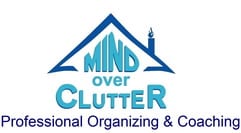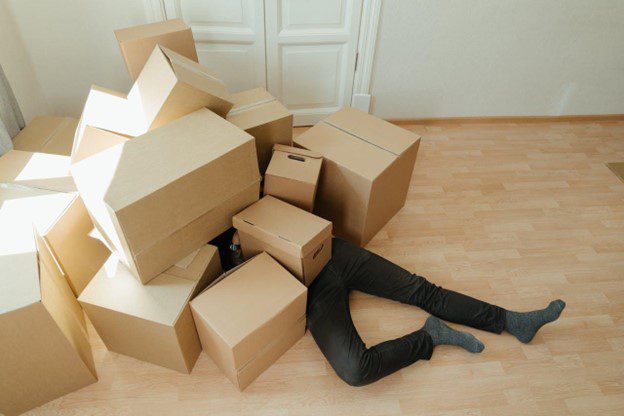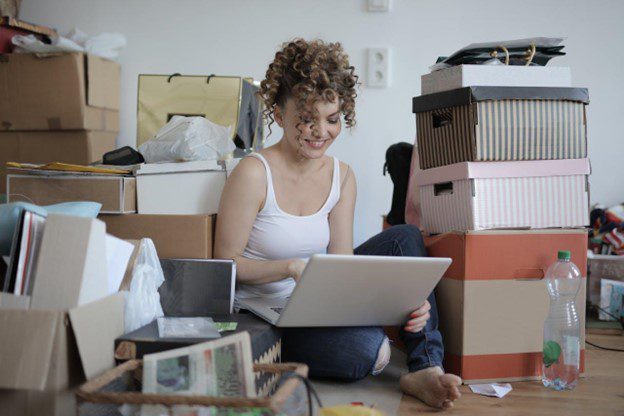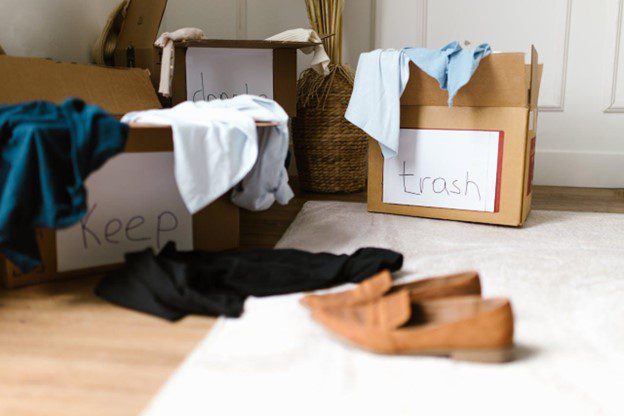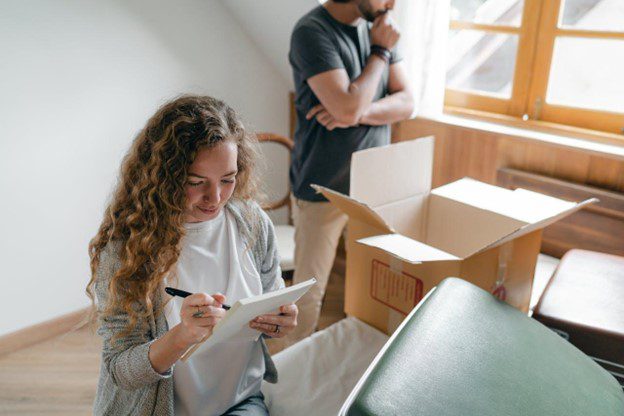How Packing and Storing Excess Items Can Slow Down Your Move and Increase Expenses
Reading time – 5 minutes
My guest blogger is Maria Stuart. I appreciate her sharing this advice.
Moving to a new home can be an exciting experience, but the process often comes with unexpected challenges. One of the most common pitfalls is packing and storing excess items, which can add unnecessary complexity and cost to your move. Excess belongings can slow down every process step, from packing and loading to unpacking and organizing. You can plan more efficiently and save time, energy, and money with focus and the right action.
The Hidden Costs of Packing Too Much
When you pack and store items you no longer need or rarely use, it not only increases the time required to move but also adds to your expenses. Every extra box, bag, or item takes up space and adds weight, leading to higher transportation and labour costs. More items also mean purchasing additional packing materials like boxes, tape, and bubble wrap, which can add up quickly. The increased volume of excess items can significantly inflate moving costs for hiring professional movers. Movers often charge based on the size or weight of the load, so the more you pack, the more expensive your move becomes.
Why Downsizing Matters
Streamlining your possessions before a move is not just about reducing clutter; it’s also a way to save money and minimize stress. Excess items can slow the packing and loading process, delay your move, and make unpacking at your new home overwhelming. When you downsize, you simplify the entire moving process and ensure that your energy is spent only on items that truly matter to you.
How to Downsize Effectively Before a Move
Downsizing simplifies your move and helps you start fresh. Begin by sorting your belongings into three categories: keep, donate, sell, and discard. Ask yourself, “Have I used this in the past year?” or “Does this add value to my life?” If not, it’s time to part ways. Donate usable items to local charities or sell them on platforms like Facebook Marketplace or eBay. A garage sale is another easy way to remove unwanted items while earning extra cash. Streamlining your belongings will reduce moving costs and create a more organized space in your new home.
How to Avoid the Pitfalls of Packing and Storing Excess Items
To make your move more efficient, follow these steps to declutter and organize your belongings before the big day:
- Sort and prioritize: Separate your belongings into three categories: keep, donate, and discard. Be honest about what you truly need.
- Start early: Begin decluttering weeks in advance to avoid last-minute stress.
- Rent a storage unit wisely: Only store items you will use shortly or have long-term value.
- Minimize packing supplies: Fewer items mean fewer boxes, saving money and effort.
- Digitize when possible: Scan documents and photos to reduce physical storage needs.
The Role of Excess Items in Moving Delays
One of the most overlooked consequences of packing and storing excess items is the additional time it takes to load and unload your belongings. Take action now, reduce what you pack, and save valuable time and energy. Movers may spend extra hours handling unnecessary items, which can lead to delays in transportation and higher fees if movers charge by the hour. Excess belongings also create logistical challenges, as larger or bulkier items may require special handling or additional storage space. Even if you’re moving alone, the sheer volume of excess items can make the process exhausting. Multiple trips to transport everything can lead to burnout, making the entire move far more stressful than it needs to be.
Packing Smarter, Moving Faster
A well-organized move begins with thoughtful planning. Start by inventorying everything you own and identifying which items you use regularly versus those gathering dust. If something hasn’t been used in months or years, it’s a good candidate for donation or disposal. Decluttering also creates opportunities to help others. Items in good condition, such as clothing, furniture, or electronics, can be donated to local charities or given to friends and family.
Also, to pack like a pro after decluttering, use the right packing supplies, such as sturdy boxes, bubble wrap, and packing tape, to keep your belongings safe. Adopt a room-by-room packing strategy to streamline the process, focusing on one area at a time to stay organized. Be sure to label and organize boxes by content and room destination—this simple step will save time and energy when unpacking in your new home. Planning ahead and efficiently packing can make your move smoother and faster.
Rethinking Storage: Value vs. Cost
When storing items, it is important to think critically about their future value and necessity. Seasonal decorations, sentimental items, or belongings you might need in the future can be stored temporarily, but consider whether these items are worth the ongoing storage cost. For instance, if an item hasn’t been used in years and holds little practical or emotional significance, it might be better to donate or sell it instead of paying to keep it in a storage unit.
Additionally, downsizing your belongings before renting a storage unit can lead to significant savings. By carefully curating what you choose to store, you may be able to rent a smaller, more affordable unit. That reduces costs and prevents you from holding onto items that could become a burden over time. Choose from innovative storage solutions when downsizing and moving to a smaller home.
The Long-Term Benefits of Decluttering
Packing and storing excess items doesn’t just slow you down during the move—it also affects how quickly you settle into your new home. Fewer items mean less unpacking, giving you more time to focus on arranging your new space. Moving into a clutter-free home can be refreshing and helps create a more organized living environment from day one. Decluttering before your move also helps you better appreciate the belongings you choose to keep. When your new home is filled only with items that have a purpose or bring joy, it’s easier to maintain a clean and functional space. This approach makes your move a logistical success and a positive start in your new home.
In Conclusion
Packing and storing excess items can quickly complicate your move, wasting time and increasing costs. By decluttering your belongings, prioritizing essentials, and carefully planning your packing strategy, you can enjoy a smoother, more budget-friendly relocation. A little upfront effort can save you time, money, and stress, helping you settle into your new home easily. Start early, pack smart, and make your move a positive experience.
Share a moving tip that made your move easier
 Julie Stobbe is a Trained Professional Organizer and Lifestyle Organizing Coach who brings happiness to homes and organization to offices, coaching you virtually using Zoom. She has been working with clients since 2006 to provide customized organizing solutions to suit their individual needs and situations. She uses her love of teaching to reduce clutter, in your home, office, mind and time. She guides and supports you to be accountable for your time, to complete projects and to reach your goals. If you’re in a difficult transition Julie can coach you to break-free of emotional clutter constraining you from living life on your terms. Online courses are available to help instruct, coach and support your organizing projects. Get started by downloading Tips for Reorganizing 9 Rooms.
Julie Stobbe is a Trained Professional Organizer and Lifestyle Organizing Coach who brings happiness to homes and organization to offices, coaching you virtually using Zoom. She has been working with clients since 2006 to provide customized organizing solutions to suit their individual needs and situations. She uses her love of teaching to reduce clutter, in your home, office, mind and time. She guides and supports you to be accountable for your time, to complete projects and to reach your goals. If you’re in a difficult transition Julie can coach you to break-free of emotional clutter constraining you from living life on your terms. Online courses are available to help instruct, coach and support your organizing projects. Get started by downloading Tips for Reorganizing 9 Rooms.
Contact her at julie@mindoverclutter.ca
